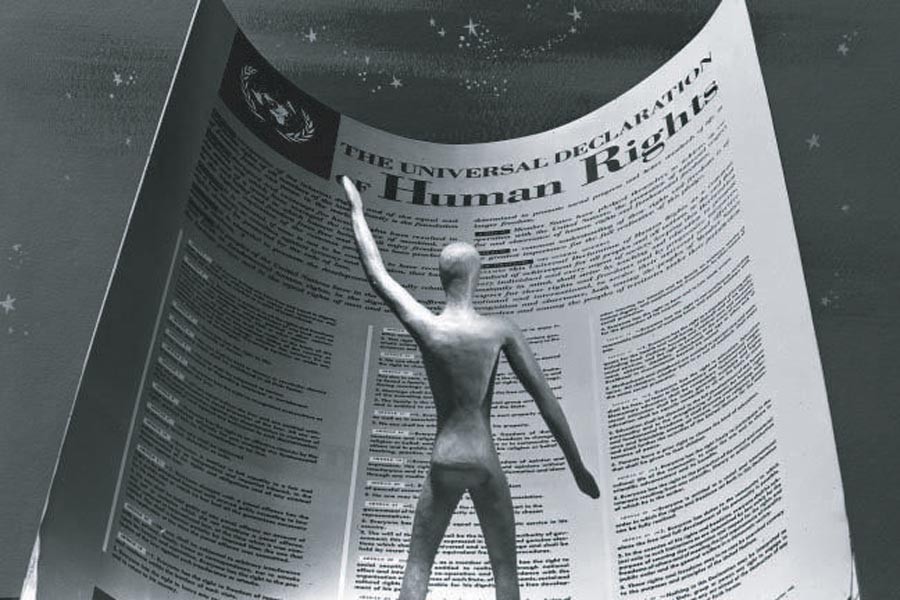
Published :
Updated :

It is common for Bangladeshi people to wrongly describe basic necessities of life like food, clothing, shelter, healthcare and education as fundamental rights. This misconception of rights prevails not only among regular folks, but also among highly-placed people. Newspapers sometimes run articles written based on such misconceptions. Due to the misunderstanding, they portray the basic necessities as fundamental rights on one hand and skip many human rights on the other. Low level of awareness among citizens about fundamental rights and human rights, thanks mainly to lack of initiatives from the government despite the obligation to it to publicise rights documents, is mostly responsible for the misconception.
The Bangladesh Constitution has incorporated many of the principles of the Universal Declaration of Human Rights (UDHR), which is considered a cornerstone of international human rights law and a foundational document for global efforts to protect human rights. The national charter guarantees a wide range of UDHR, such freedom of expression, movement, assembly and association, equal protection under the law, non-discrimination, and safeguards against arbitrary arrest, as fundamental rights, by placing them in the Fundamental Rights part. The supreme law provides that anyone can move the High Court for redress in case they are deprived of any of these rights. The constitution has incorporated several other UDHR in its Fundamental Principles of State Policy part with the provision that the State shall strive to attain them for its citizens but no one can seek court intervention in case the State cannot ensure it. Several of the basic human necessities that we often mistakenly described as fundamental rights, including food, clothing, shelter, education and medical care, are included in this part.
Anyway, Bangladesh also ratified most of the key international rights documents, including the International Covenant on Civil and Political Rights (ICCPR), the International Covenant on Economic, Social and Cultural Rights (ICESCR), the Convention on the Rights of the Child (CRC), the Convention on the Elimination of All Forms of Discrimination Against Women (CEDAW), and the UN Convention on the Rights of the Child (UNCRC). Yet, awareness among Bangladeshi people of the rights guaranteed by the statutes is alarmingly low. Lesser-known rights, such as those related to the environment, persons with disabilities, minority and indigenous communities, informal sector labourers, and digital rights, are especially neglected.
The main reason behind this deficiency lies in the failure of successive governments to fulfil their responsibility to publicise rights-related statutes. The Constitution and the international statues Bangladesh is party to impose an obligation on the State to inform citizens about their rights. The government has, however, kept its responsibility limited only to translating them into Bangla; no other tangible efforts to make the documents reach out to citizens are evident.
There is no denying that the lack of awareness about rights means that violations go unreported and unaddressed. Low rights awareness is partially responsible for the high rate of domestic violence, discrimination, exploitation and corruption, and cheating of workers. Non-governmental organisations (NGOs), media outlets, and rights groups are making efforts to raise awareness about rights. But their reach is still limited.
The government needs to step up efforts to create adequate awareness among citizens about fundamental rights, human rights and their obligations. If it falls short in its duty to publicise rights documents and educate people, the promise of justice, equality, and dignity will remain out of reach for many. Bridging the awareness gap is not a matter of choice; it is a legal and moral obligation to the government.
rahmansrdk@gmail.com


 For all latest news, follow The Financial Express Google News channel.
For all latest news, follow The Financial Express Google News channel.